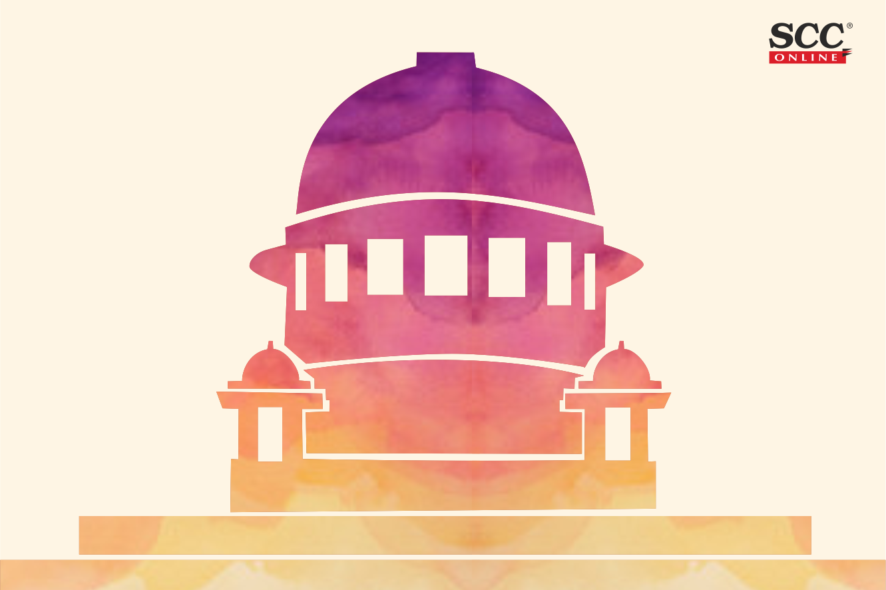Supreme Court: The Division Bench comprising of Hemant Gupta* and V. Ramasubramanian, JJ., set aside NCDRC’s order granting 14 lakhs compensation to the claimants in negligence claim against doctors. The Bench stated,
“The doctors are expected to take reasonable care but none of the professionals can assure that the patient would overcome the surgical procedures.”
In the instant case, the National Consumer Disputes Redressal Commission (NCDRC) had directed the appellants i.e., Bombay Hospital & Medical Research Centre and Dr. C. Anand Somaya to pay a sum of Rs. 14,18,491/- along with interest at 9% p.a. to the claimants. The claimants, namely legal heirs of the deceased – patient Dinesh Jaiswal had alleged medical negligence and deficiency of service on the part of the Hospital and the Doctor in treating the patient.
Factual Analysis
Noticeably, the allegation against the hospital was of failure of the Doctor to take the follow-up action after surgery, a delayed decision to amputate the leg subsequent to re-exploration, and the alleged undue foreign visit of the Doctor.
Admittedly, the patient was in critical condition when the Doctor was consulted and surgery was thereafter performed within two days. Rejecting the claim of negligence, the Bench opined that non-working of the DSA machine and consequent delay in performing the test could not be said to be negligence on the part of the Doctor or the Hospital. The Bench remarked,
“DSA machine is a large, expensive and complicated machine which unfortunately developed certain technical problem at the time when patient had to be tested. Any machine can become non-functional because of innumerable factors beyond the human control as the machines involve various mechanical, electrical and electronic components.”
Since the DSA test of the patient was conducted in the Hospital prior to surgery was a proof that DSA machine was not dysfunctional for a long time. Moreover, the alternative process to determine the blood flow was carried out by angiography and the decision for re-exploration was taken. On the issue of non availability of operation theatres, the Bench held,
“No fault can be attached to the Hospital if the operation theatres were occupied when the patient was taken for surgery. Operation theatres cannot be presumed to be available at all times.”
Therefore, the Bench opined that non-availability of an emergency operation theatre during the period when surgeries were being performed on other patients was not a valid ground to hold the Hospital negligent in any manner. In respect of the allegation that doctors failed to amputate legs on time, the Bench observed that efforts were being made to save the limbs as amputation was considered as the last resort. The amputation was done as per the advice of Dr. Pachore, who was the expert in that subject. Similarly, with regard to the contention of the Doctor being on a foreign visit, the Bench held that mere fact that the Doctor had gone abroad could not lead to an inference of medical negligence as the patient was admitted in a hospital having specialists in multi-faculties.
Findings of the Court
Noticeably, it was not the case of the complainant that Doctor was not possessed of requisite skill in carrying out the operation. Also, there was no proof of negligence in performing the surgery or in the process of re-exploration. Therefore, the Bench expressed,
“In spite of the treatment, if the patient had not survived, the doctors cannot be blamed as even the doctors with the best of their abilities cannot prevent the inevitable.”
Opining that there is a tendency to blame the doctor when a patient dies or suffers some mishap, the Bench stated that the doctors are expected to take reasonable care but none of the professionals can assure that the patient would overcome the surgical procedures.
“It is too much to expect from a doctor to remain on the bed side of the patient throughout his stay in the hospital which was being expected by the complainant here. A doctor is expected to provide reasonable care which is not proved to be lacking in any manner in the present case.”
Decision
Spotting both legal and factual errors in the findings recorded by NCDRC, the Bench opined that the order holding the Hospital and the Doctor guilty of medical negligence were not sustainable in law. Consequently, the appeals were allowed. The order of the NCDRC was set aside and the complaint was dismissed.
However, the Bench directed that the sum of Rs. 5 lakhs disbursed to the complainant by virtue of interim order passed by the Court should be treated as ex gratia payment to the complainant and not to be recovered by either the Hospital or the Doctor.
[Bombay Hospital & Medical Research Centre v. Asha Jaiswal, 2021 SCC OnLine SC 1149, decided on 30-11-2021]
Kamini Sharma, Editorial Assistant has put this report together
*Judgment by: Justice Hemant Gupta






